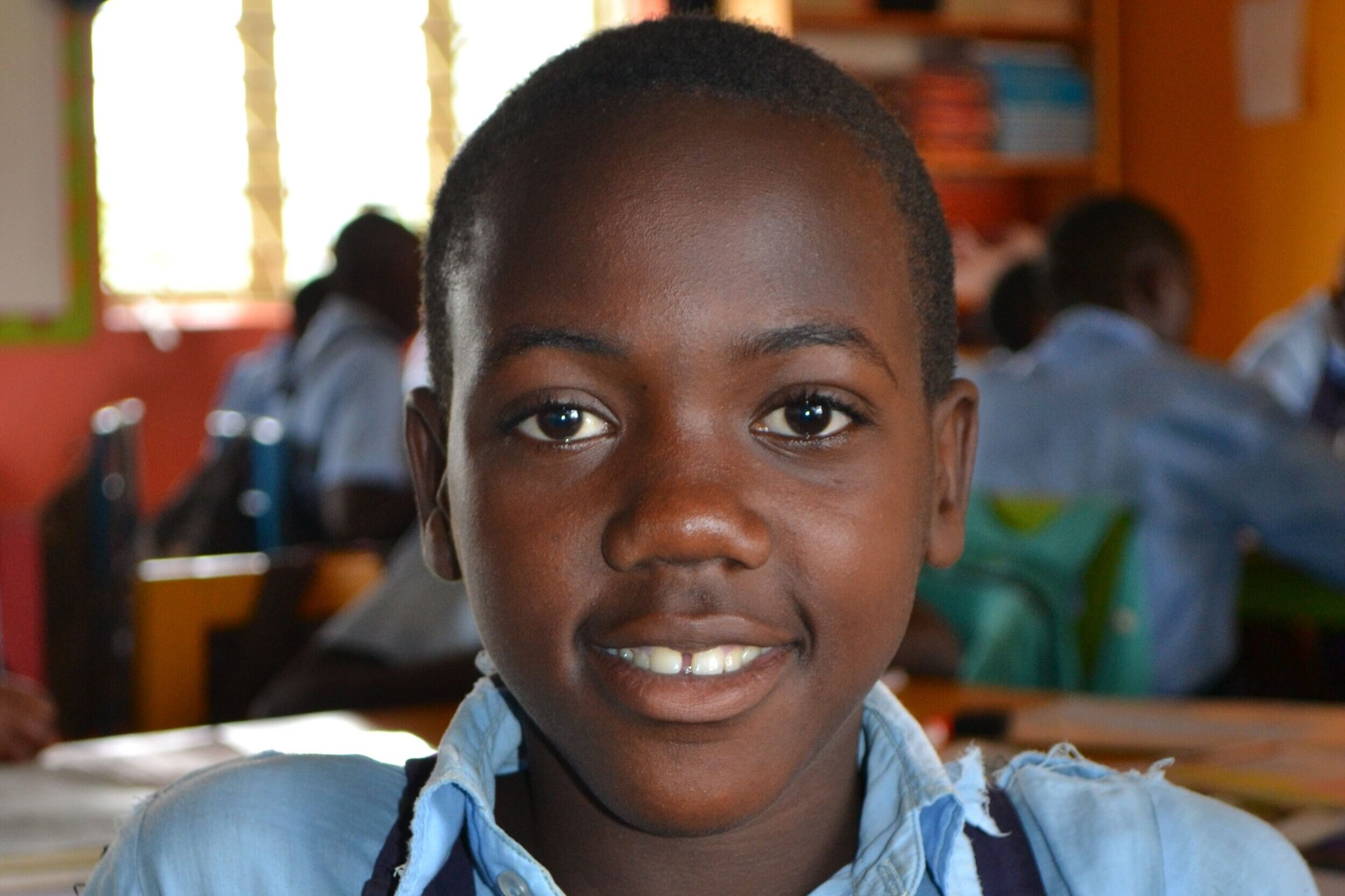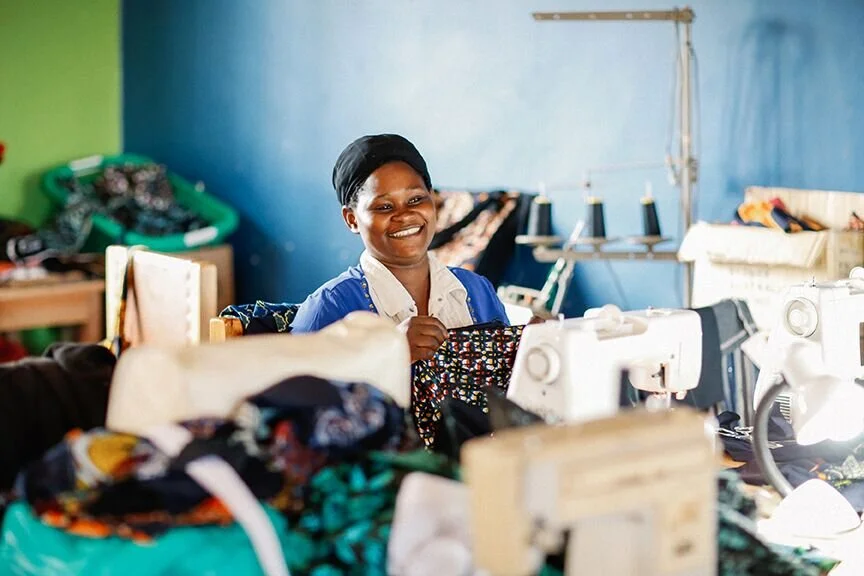Kessia Lum, our Project Coordinator in Uganda, shares her story from our most recent community outreach workshop to raise awareness about domestic abuse, violence, children's and women's rights in Katuuso, the village surrounding School for Life.
Children from Buzimwa village where the School for Life and Raising Voices workshop took place.
“Our daughter is in Primary 6. My husband had already decided that next year would be the last year we would put her in school. He said we had done a good job, getting her all the way through primary school that she didn’t need to go to secondary school. I am so glad we came to the weekend community outreach at the school; because of it my husband has changed his mind. After hearing Raising Voices speak about the importance of education for our children, he is now committed to our daughter’s education and has promised me he’ll send her to your secondary school.”
This is one of many of the responses we received after hosting a two-day community outreach in Katuuso village. Let me first begin by telling you a little about Katuuso and neighbouring villages. Located one hour west of Kampala, Uganda's capital, Katuuso is plagued with chronic issues which cripple the community. The majority of residents survive on subsistence farming. These past few years, the harvest has been poor, leading to the community struggling to earn even the most basic living. Family planning is virtually non-existent; more children mean more mouths to feed and less opportunity to send children to school as the older kids look after the younger kids and also help their mum work in the fields so they have enough to eat. Domestic violence is high and it isn’t uncommon for children to be given just one meal a day. Recently there have been several reports of sexual violence within the village. Katuuso Primary and Vocational School has become a hub for the community; with parents, wives and students all seeking help from the school and teachers, dependent on us for help and advice on what to do.
Given the complicated nature of the village, we sourced external help from Raising Voices, an organisation which works to protect the rights of women and children in Uganda. We’d agreed to do a two-day program: the first day to address the community in an outreach workshop in the nearby villages, and the second to be a staff and teacher training workshop. On day one, our Head Teacher Robert, several female teachers, the Raising Voices team and I drove slowly through the dirt roads surrounding the school, notifying residents through a PA system that we would be hosting a program that afternoon in the Buzimwa Trading Centre, a village a few kilometers away from our school where many of our students reside. The turnout was good. Altogether there were approximately 75 adults in the audience, together with our teachers and local council members. The audience not only listened, but actively participated in Raising Voices debates about children and women’s rights, corporal punishment, sexual violence and gender inequality. Through music, dance, skits and educational materials, the Raising Voices team effectively led a three-hour program in the village, and the feedback was great. The community thanked us for coming to visit them and gave examples of how their mindsets had been changed on a myriad of topics.
Men from Buzimwa village discuss topics raised during the workshop.
It was 6:30pm and the sun was setting. We loaded back into the van and started the drive back to school. Although I was extremely satisfied with the day, I had a nagging feeling that our reach hadn’t been large enough to make the impact I had envisioned. I decided to request the Raising Voices team to do a second community outreach program the following day, after the teacher’s workshop. Fortunately, the team was as committed as us to making positive changes within the community; we began planning the program for the following day. We decided that we would need to inform the community that evening of the ‘weekend special,’ which would take place at midday at the school the following day. Once again, the teachers, myself and the Raising Voices team loaded into the van and began a night drive throughout all of the villages where our students reside, using a microphone and music to broadcast the plan. Imagine the parents surprise, when our teachers were shouting their names through the loudspeaker as we slowly drove past their houses in the dark. At 9:30 pm, after two hours of driving, we returned to the school, confident that the word had been effectively spread about the following day’s activities. Exhausted, it was time for bed.
The next morning was the teacher’s workshop. All of our teachers from both of our schools participated, as well as the ladies from our Kumi tailoring program and any interested support staff. Raising Voices discussed what makes a good teacher, what makes a good school, positive reinforcement and discipline and how to identify cases of child abuse, as well as what to do in those instances. Their workshop was incredibly well received, and our staff members were grateful that they had participated.
Our teachers during their Raising Voices workshop.
Once the workshop ended, we were relieved to see that people were starting to arrive at the school – word had spread effectively and people were curious to see what would take place. Music began to play, a Raising Voices team member dressed in stilts walked around the village to attract people and a crowd began pouring in. Before we knew it, our large exam hall was packed; parents, children, police, council members and residents filled the room and we were ready to begin.
You can imagine the attention this guy got as he wandered around Katuuso village to spread the word about the afternoon workshop!
Raising Voices played several films in Luganda (the local language), on a large projector on the stage. The first film was about a father who had sold his fourteen-year-old daughter for marriage in exchange for cows. The second was about parents who had pulled their children from school to work in the farms. After each film, Raising Voices asked the audience what they had thought and people were fighting for the microphone to offer their opinions. People continually referenced School for Life and what we were doing to change the community's mindset.
One elderly man stood up to say that of all of the people his age in the village, only two had ever completed school. He thanked SFL for the work they were doing for the current generation.
The day ran long as the community continued to request that we play more and more videos and receive more and more information. We packed up at 6:30pm, fatigued but feeling elated that the parents and residents had been so receptive to our program. As we drove the dirt roads leading away from Katuuso, the roads were filled with people holding the colourful pamphlets we'd handed out about violence against children and corporal punishment, and posters that said ‘what makes a good teacher’ and ‘what makes a good school.’ All of us had a big smile on our face.
The turnout from the Katuuso community was incredible!
In the days to follow, the school was overwhelmed with positive responses from the community, thanking us for caring about them enough to host this event, as well as to relay stories as to how the outreach program had made an impact on their lives. Mothers were reinvigorated to find a way to put their children through school; wives who left their abusive husbands expressed how empowered they now felt.
Change doesn’t happen in two days but we know these workshops were a step in the right direction.
To learn more about the work that we do in rural Uganda, subscribe to our monthly newsletter.
Thank you for your continued support and a huge thank you to Raising Voices for their incredible work.
Written by Kessia Lum – Project Coordinator














